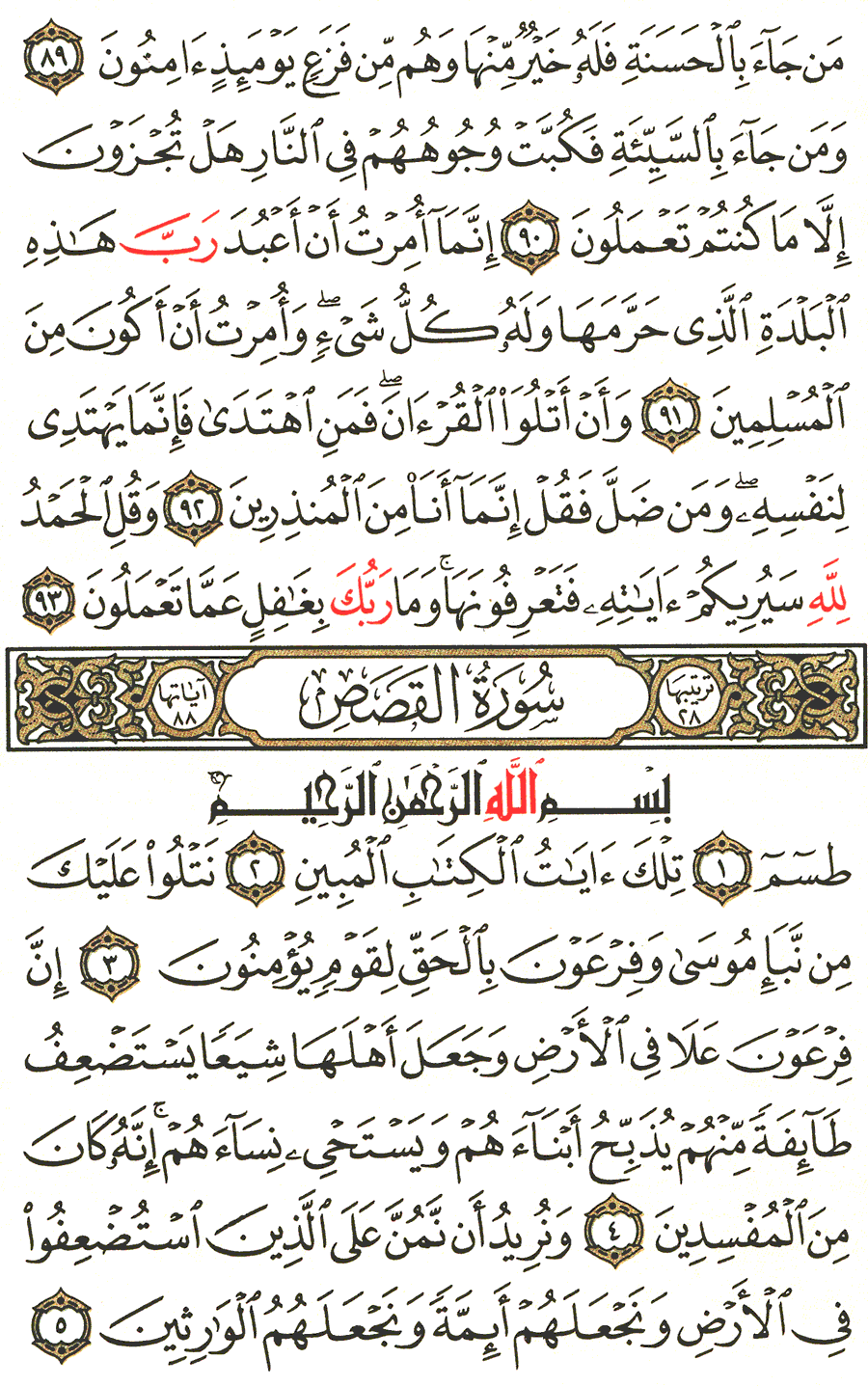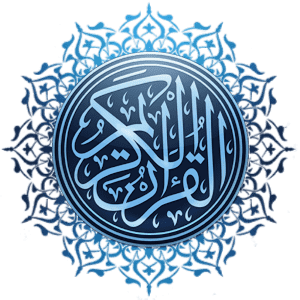Surah Al-Qasas | from the moshaf in arabic uthmani
| Listen mp3 | Tafsir Arabic | tafsir mokhtasar |
| English | Indonesian | French |
| German | Hausa | Spanish |

English translation of the meaning Page No 385
Sura Al-Naml from 89 to 5
89. Whoever brings a good deed ( i.e. Belief in the Oneness of Allâh along with every deed of righteousness ) , will have better than its worth; and they will be safe from the terror on that Day.
90. And whoever brings an evil deed ( i.e. Shirk - polytheism, disbelief in the Oneness of Allâh and every evil sinful deed ) , they will be cast down ( prone ) on their faces in the Fire. ( And it will be said to them ) « Are you being recompensed anything except what you used to do? »
91. I ( Muhammad ( saas ) ) have been commanded only to worship the Lord of this city ( Makkah ) , Who has sanctified it and to Whom belongs everything. And I am commanded to be from among the Muslims ( those who submit to Allâh in Islâm ) . [ 1 ]
92. And that I should recite the Qur’ân, then whosoever receives guidance, receives it for the good of his ownself; and whosoever goes astray, say ( to him ) : « I am only one of the warners. »
93. And say [ ( O Muhammad ( saas ) ) to these polytheists and pagans. ] : « All the praises and thanks be to Allâh. He will show you His Ayât ( signs, in yourselves, and in the universe or punishments ) , and you shall recognise them. And your Lord is not unaware of what you do. »
Sûrat Al- Qasas
( The Narration ) XXVIII
In the Name of Allâh,
the Most Gracious, the Most Merciful
1. Tâ- Sîn- Mîm
[These letters are one of the miracles of the Qur’ân, and none but Allâh (Alone) knows their meanings].
2. These are the Verses of the manifest Book ( that makes clear truth from falsehood, good from evil ) .
3. We recite to you some of the news of Mûsâ ( Moses ) and Fir‘aun ( Pharaoh ) in truth, for a people who believe ( in this Qur’ân, and in the Oneness of Allâh ) .
4. Verily, Fir‘aun ( Pharaoh ) exalted himself in the land and made its people sects, weakening ( oppressing ) a group ( i.e. Children of Israel ) among them: killing their sons, and letting their females live. Verily, he was of the Mufsidûn ( i.e. those who commit great sins and crimes, oppressors, tyrants ) .
5. And We wished to do a favour to those who were weak ( and oppressed ) in the land, and to make them rulers and to make them the inheritors,
[1] (V.27:91)
a ) Narrated Ibn ‘Abbâs ( raa ) : On the day of the conquest of Makkah, Allâh’s Messenger ( saas ) said: « Allâh has made this town a sanctuary. Its thorny bushes should not be cut, its game should not be chased, and its fallen things should not be picked up except by one who would announce them publicly. » ( Sahih Al- Bukhari, Vol.2, Hadîth No.657 ) .
b ) See the footnote of ( V.2:191 ) .










Page No 385 Download and Listen mp3